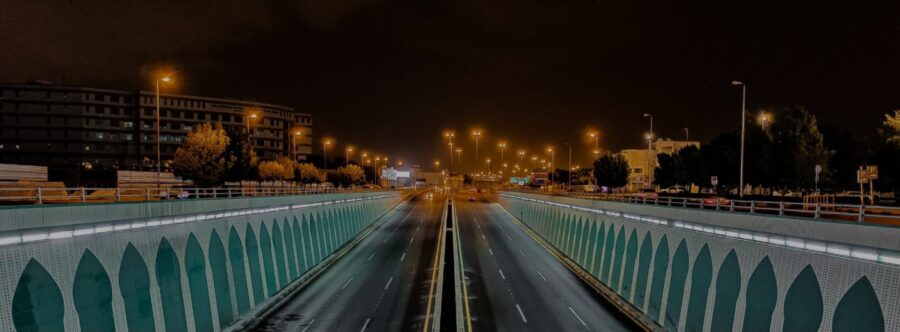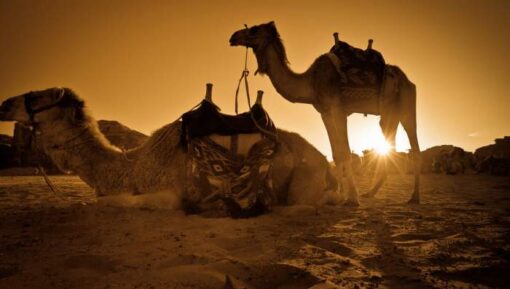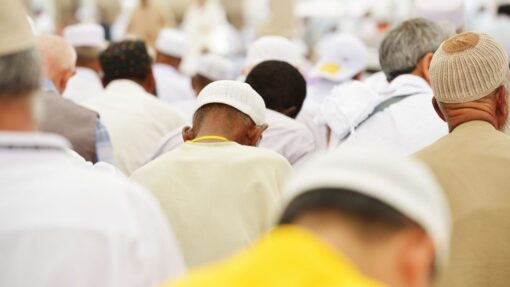Editor’s Note:
On the occasion of Hijrah, the author reflects on this remarkable occasion, and sheds light on some of the social lessons derived from Hijrah.

Editor’s Note:
On the occasion of Hijrah, the author reflects on this remarkable occasion, and sheds light on some of the social lessons derived from Hijrah.
Leaving in the deep of the night. Fleeing for one’s life.
Making a move to seek refuge in Allah and Allah alone.
Starting a new life in an unknown and new land. Feeling homesick, nostalgic, and emotional towards everything that has been left behind.
Hijrah, in general, is an emotional plight.
We know the historical pieces of Hijrah that drove the small group of believing Muslims away from persecution and into safety, only to be faced with new challenges, such as attacks from various tribes that were sparked by the emigration.
This was all done for Allah, and because it was a turning point in Islamic history, it pays heed to reflect on the social lessons derived from this pivotal change for Muslims and apply them to the Hijrahs of today.
While the handful of Muslims had moved together as an ummah and founded the first civilization in Madinah—the first known to humankind—we have to remember that each of the companions, including the female ones, faced their own personal hijrahs—journeys and challenges in their own right.
Asm’aa bint Abu Bakr spent the first nights of her father and the Prophet’s departure, sashaying food to them through the turbulent desert while the men were wildly hunted down by their own tribes.
She was brutally assaulted by her archenemy Abu Jahl when she refused to provide or reveal the whereabouts of the two beloved men in her life.
Umm Salama, another comrade and later a wife of the Prophet, was torn away from her family during the Hijrah.

Already an outcast to her family, she spent a while before she was able to be reunited with her children (who had been taken from her) and her husband, who had left for Madinah.
Then there was Prophet Muhammad’s eldest daughter, who had to leave her husband in later years and make her way to Madinah in her own personal hijrah as her beloved husband refused to share her faith.
Every single woman of the time, iconic as they are now, went through challenges and obstacles of their own in order to attain the recognition of greatness in Islam.
In today’s age, challenges and obstacles still exist, only in different forms. Yet they are here and bear great importance, as every single Muslimah makes her own Hijrah.
In today’s hijrah (whether physical or not), for our own self-betterment, social extractions of the Islamic emigration can be infused in our lives to make each journey smoother and a more spiritual one, in order to please Allah Ta’ala.
The Hijrah was not a simple journey. It did not happen overnight; there were months and months of planning that took place before the actual journey began.
This is important to remember because we often forget that change is gradual, even if it is just writing out a plan or putting little things together.
The big event will eventually materialize, but it takes time and effort for it to come together.
The Hijrah was also seen as the storm before the calmness and warmth of Madinah.
Prophet Muhammad (pbuh) and his followers spent years and years spreading Islam in treacherous conditions.
It was not easy for them to keep going, but the directives of Allah to maintain good relations with kin were still loud and clear, and they were compelled to continue to preach the Oneness of God.
After continuous efforts and successfully having stronghold icons like Hamzah Ibn Abdul Mutalib and Umar Ibn Khattab embrace Islam, the Quraysh have grown agitated.
They began to hunt and torture the poorer Muslims relentlessly.
The Hijrah came at a much-needed time when their lives were at stake and they had to leave to save themselves.
Although our Hijrahs will not be of such great magnitude today, it is important to remember that these changes do not come easily. But our efforts to change will always be followed up with Allah’s help and guidance, as compared to not putting any effort in at all.
There will be wars, sandstorms, and torrential rains that will push us to breaking point, but with every hardship comes a double ease, and we have to go through these challenges before arriving at our personal states of calm.
The Hijrah was comprised of a variety of people. While by far the majority of them were emigrating for the sake of Allah, there were those who had other intentions, such as moving for business opportunities or to get married.
While these were not wrong for the Hijrah, their rewards were only based on their intentions.
Similarly, with our own personal Hijrahs, reassessing our intentions for all the right reasons will ultimately set the paths to the right goals and, in turn, reap the right rewards and blessings in order to undergo such changes.
The Hijrah is a great reminder to renew our intentions throughout the changes we go through so we don’t fall waylay along the way.
The Hijrah teaches values of brotherhood between the Ansar and Muhajireen at Madinah.
The Ansar took in the Muhajireen without second thoughts, providing them home, food, and shelter, and were praying with them in the new Masjid that was built in Madinah.
Prophet Muhammad (pbuh) preached about the importance of holding on to each other as one community, and this is a much-needed reminder in today’s divided society.
Remembering to wish the same for a brother or sister as oneself is part and parcel of a believer’s faith; what a great lesson from the Hijrah, especially in today’s world of consumerism and materialism.

What is it that we really want for ourselves and our brothers/sisters?
Going through changes is a wonderful time to reassess what we really mean when we talk about success, happiness, and guidance.
No matter what we are moving away from, whether good or bad. The past is part of us and carries lessons for the future, influencing our decisions and shaping our opinions of things to come.
The Hijrah is actually not a one-stop solution to our problems or a dead end to an opportunity.
The journey continues, much like the journey of the Muslims, whose ultimate goal was to return to Makkah.
As they settled down in Madinah, there were numerous attacks upon them, as their da’wah work spread as an institution (state), rather than at an individual level.

This was a grave threat to the people of Makkah, especially the Quraysh tribe, who were unable to eradicate such a movement on such a grand scale.
Humiliated and dejected, the Quraysh attacked the Muslims outwardly, and when they could not kill off their spirit even when the Quraysh were victorious at the Battle of Uhud, they began to create allies within Madinah through Jewish tribes and attacked from within.
The Muslims, even though they had escaped persecution in their homeland, were still at risk in Madinah. After a moment of calm, they settled down in the relatively safe environment.
They still had to fight battles. Lives were still lost, and families were torn apart.
And this is the same for Hijrahs today. They are journeys. Just because a major change happened does not mean life came to a stop.
More challenges come along the way—maybe even more difficult ones—and we must force ourselves to look forward and renew our intentions at every possible juncture.
At the end of the day, much like the comrades of Prophet Muhammad (pbuh), and some of the many iconic women of the time, like Asma, Umm Salama, and Zaynab, we have to remember to put our trust in Allah.
After planning, strategizing, and thinking through a big change, we can have so much control over our situations, whether it is entering into a marriage or taking an opportunity to climb the corporate ladder.
Women all over the world face challenges of their own, whether personal, family, professional, or spiritual in nature.
Some of them are physical Hijrahs, where they move from one place to another – and every single change needs to be endorsed by Allah Ta’ala for it to happen smoothly.
So while we plan, face the obstacles and embrace the change, we have to remember that we can only do so much – and once we have tied our camels, we need to leave the rest to Allah.
We have to trust that He is the Best of Planners and our Guide, no matter how difficult or enthralling the journey becomes much like the Hijrah from Makkah to Madinah.
SOURCE: https://aboutislam.net/family-life/your-society/hijrah-prophet-hijrah-today/